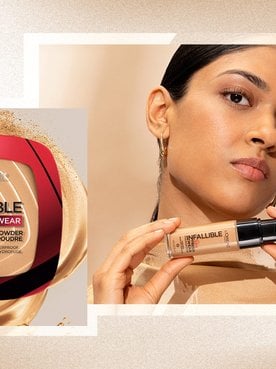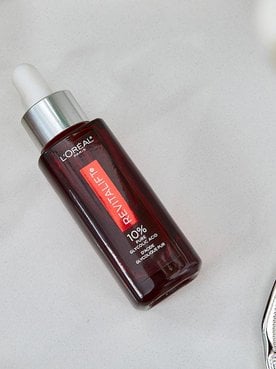Perfecting your skincare routine takes time, research, and a little trial and error—and the same goes for finding the best anti-aging night cream for your skin’s unique needs. Just as you wouldn’t buy the first house you tour, it’s worth exploring your options before settling on a nighttime moisturizer.
Night creams can do more than deliver lasting hydration—they can also target specific skin concerns, such as fine lines or discoloration. But not all formulas are created equally. To find your perfect match, you’ll need to consider your skin type, primary concerns, and how the product will fit into your existing routine.
Ahead, we’re breaking down everything you need to know to choose the best anti-aging night cream for your skincare goals, whether you’re looking to revive tired, mature skin, or you’re building an anti-aging routine for the very first time.
Why You Should Use an Anti-Aging Night Cream
Before we explain how to find the best anti-aging night cream for your skin, we thought it’d be useful to discuss why using a dedicated night cream matters in the first place. While moisturizing morning and night is essential for healthy skin, the formulas you use at each time of day serve different purposes.
Daytime moisturizers are designed to protect, and they’re typically formulated with lightweight hydrators, sunscreen, or antioxidants that help defend against air pollution and other environmental stressors. Night creams, on the other hand, are formulated to restore. While you sleep, your skin enters repair mode, working to renew skin cells and recover from daily stress. A good night cream can help support this natural regeneration process to promote a healthier-looking (and healthier-feeling) complexion over time.
Keep in mind, however, that the exact benefits of your anti-aging night cream depend on the formula you choose. Night creams with retinol, for example, may help diminish the appearance of fine lines and wrinkles, while those containing collagen or hyaluronic acid can help plump up the skin and support a smoother skin texture. As such, finding the best anti-aging night cream for your needs hinges on determining what concerns you’d like to address and selecting a formula designed for that purpose.
How To Choose the Best Anti-Aging Night Cream for Your Skin
When it comes to finding the best anti-aging night cream, there are a few key factors to keep in mind, including your skin type, primary concerns, and texture or ingredient preferences. The right formula should complement your skin’s needs and fit seamlessly into your existing routine.
Ahead, we’ll break down what to look for in a night cream so you can choose one that truly supports your skin and helps you reach your long-term skincare goals.
Determine your skin type
Your skin type plays a major role in determining which moisturizer will work best for you. If you have dry skin, you’ll generally benefit most from richer, cream-based formulas that lock in hydration and help strengthen the skin barrier. Those with oily or combination skin types may prefer lighter, water-based moisturizers that provide moisture without feeling heavy or greasy. For sensitive skin, look for gentle, fragrance-free formulas made with soothing ingredients to help calm and balance your skin.
Consider your skin concerns
Your specific skin concerns are just as important to consider as your skin type when choosing the right night cream. In your 30s or 40s, you may want to look for lightweight formulas that help support collagen production or brighten the skin. As you get older and your skin becomes drier and less elastic, it may be worth switching to a richer night cream that can help nourish your skin and minimize the appearance of wrinkles. The best anti-aging night cream for a 30-year-old and the best anti-aging night cream for a 60-year-old may look completely different—and that’s okay. Your skincare routine should change as your needs evolve.
Think about the rest of your nighttime routine
It’s also important to consider how your night cream fits into the rest of your skincare routine. For instance, if you typically use an exfoliating serum or a retinol treatment in the evening, opt for a gentle, barrier-supporting moisturizer to help minimize potential irritation. Not all ingredients pair well together, and layering too many actives can sometimes lead to dryness or sensitivity. When in doubt about whether certain products can be used in the same routine, it’s best to consult your dermatologist for personalized guidance.
Keep your personal preferences in mind
Personal preference also plays a big role in finding your perfect night cream. Some people love the feel of a rich, buttery texture that deeply nourishes overnight, while others prefer a lighter gel-cream that absorbs quickly and won’t feel heavy on the skin. There’s no one-size-fits-all answer—choose a formula that feels comfortable and works for you.
Our Best Anti-Aging Creams For Your Nighttime Skincare Routine
Now that you know how to narrow down your options when searching for a nighttime face cream, keep scrolling for details on eight of our favorite formulas.
L’Oréal Paris Age Perfect Skin Care Cell Renewal Midnight Cream
For intense nourishment and repair of dry, mature skin, reach for this luxurious (and celeb-approved) night cream. The non-greasy formula features a patented antioxidant complex and helps repair your skin barrier overnight when your skin is most receptive to recovery. In one use, you’ll notice your skin feels smooth and deeply nourished, while continued use over time helps target a range of age-related skin concerns, including dryness, laxity, and dullness.

L’Oréal Paris Age Perfect Skin Care Collagen Expert Night Moisturizer
As you enter middle age, your skin’s production of collagen slows, which, over time, can lead to sagging and a loss of firmness. If you’re on the hunt for an anti-aging night cream for your 50s—specifically, one that can help combat sagging skin—we suggest giving this powerful formula a try. It’s made with collagen peptides and niacinamide and is designed to help support a firmer, tighter, and smoother-looking complexion. The hydrating formula is also lightweight and non-greasy, making it an excellent pick for all skin types.
L’Oréal Paris RevitaLift Pressed Night Moisturizer with Retinol + Niacinamide
Retinol is a vitamin A derivative that can help target a range of skin aging signs, from fine lines and wrinkles to dullness. Incorporate it into your routine early with this gentle, non-irritating night cream. It’s formulated with a 12% soothing complex to help balance the drying effects of retinol and works over time to help smooth, firm, and brighten aging skin. Retinol can be irritating for those with sensitive skin, so we recommend introducing it into your routine slowly. Start with a twice-weekly application and gradually work your way up to nightly usage. For more tips, check out What Does Retinol Do, and When Should You Start Using It?

L’Oréal Paris RevitaLift Micro Hyaluronic Acid + Ceramides Line-Plumping Water Cream
If you have oily skinhttps://www.lorealparisusa.com/beauty-magazine/skin-care/skin-care-essentials/what-causes-oily-skin, traditional anti-aging face creams may feel a bit heavy on your skin. Enter: this ultra-light, water-based formula. It’s packed with hyaluronic acid and ceramides and delivers 50% more moisture while feeling light and comfortable on the skin. Use it nightly, and you’ll notice a visible improvement in both skin hydration and the appearance of fine lines.
Shop the Products
L’Oréal Paris Collagen Moisture Filler Facial Anti-Aging Moisturizer Fragrance-Free
Finding an anti-aging night cream that works well for sensitive skin can feel like a tall order, as many contain ingredients (like retinol) that can irritate reactive complexions. This ultra-gentle night cream, however, is perfect for all skin types (sensitive included). The non-greasy formula is made without dyes, parabens, mineral oil, or fragrance, and delivers up to 48 hours of hydration without weighing the skin down. Smooth it onto clean skin nightly to reveal a bouncier, firmer-looking complexion over time.

L’Oréal Paris RevitaLift Triple Power Anti-Aging Overnight Mask
Pamper your skin while you snooze with this anti-aging overnight mask. It’s loaded with vitamin C, pro-retinol, and hyaluronic acid and works overnight to boost skin’s radiance and resilience. With regular use, it also helps improve the look of dullness, smooths wrinkles, and helps firm the skin. If you’ve been on the hunt for a luxurious night cream for anti-aging, this one is definitely worth a try.
L’Oréal Paris RevitaLift Triple Power Anti-Aging Moisturizer
Good news: You can end your search for the best anti-aging night cream for your 40s here. This popular pick boasts a trio of proven anti-aging ingredients (vitamin C, hyaluronic acid, and pro-retinol) and helps address several signs of skin aging, including wrinkles, dullness, laxity, and dryness. With nightly use, you’ll begin noticing results in as little as one week.
L’Oréal Paris RevitaLift Anti-Wrinkle + Firming Moisturizer
If you’re on the hunt for an anti-aging night cream that does it all, this effective formula is a must-try. It’s formulated with pro-retinol and Centella asiatica extract and helps target both existing signs of aging—such as wrinkles and laxity—and helps the skin resist future signs of aging. Smooth it onto your clean face and neck each night to reveal softer, smoother, and noticeably firmer-looking skin over time.

Shop the Products
How To Get The Most Out Of Your Anti-Aging Night Cream
Even the best anti-aging firming face cream can only do so much, especially if the rest of your routine isn’t up to scratch. Here, learn how to get the most out of your night cream for smooth, youthful-looking skin.
1. Always wear sunscreen
Sun exposure is responsible for the vast majority (we’re talking 80%, by some estimates) of visible facial skin aging. Using an anti-aging night cream can help target some of those visible concerns, but all your work will be for naught if you don’t protect your skin from the sun during the daylight hours. Follow the advice of the United States Food and Drug Administration (FDA) and wear a broad-spectrum sunscreen with an SPF of at least 15 every day. For lasting protection, you’ll also want to reapply regularly and wear protective clothing, like wide-brimmed hats, when outdoors. If you tend to forget to apply sunscreen in the morning, simplify your routine with an SPF moisturizer, such as the L’Oréal Paris RevitaLift Triple Power Moisturizer with SPF 30.
2. Pair your moisturizer with an anti-aging serum
While you can use your anti-aging night cream alone, layering it over a facial serum can help lock in moisture and target additional concerns, like dark spots or dullness. Not all ingredients play well together, so it’s important to check the compatibility of your serum and moisturizer before using them within the same routine. If you’re looking for an anti-aging serum that you can pair with just about anything, the L’Oréal Paris RevitaLift Derm Intensives 1.5% Hyaluronic Acid Serum is a great choice.
3. Don’t forget your neck
Don’t forget to bring your anti-aging night cream down to your neck and décolletage—these are often among the first areas to show visible signs of aging. The skin here is thinner and produces less natural oil than your face, making it more prone to dryness, fine lines, and loss of firmness. Applying your night cream to your neck helps keep the area hydrated, smooth, and supported, promoting a more even, youthful look overall.
4. Stick to your routine
Consistency is key when it comes to skincare. Once you find a routine that works for you, stick with it—skincare takes time, and patience is essential if you want to see visible results. Applying your anti-aging face cream regularly helps the ingredients work to their full potential, keeping your skin hydrated, supported, and looking its best over time.
Shop the Products
FAQs About Anti-Aging Night Creams
Which is better for deep wrinkles, retinol or hyaluronic acid?
If you’re hoping to minimize the appearance of wrinkles, reach for a cream formulated with retinol. This powerhouse ingredient is well-studied for its ability to smooth texture and improve skin firmness over time. Hyaluronic acid can also provide a visible plumping effect, though it’s typically more effective for softening fine lines than deeper wrinkles.
Can night creams reverse sagging skin?
No skincare product can completely reverse sagging skin, but firming night creams can help improve elasticity and promote a smoother, more lifted appearance over time. Still, they can’t fully turn back the clock. If you’re concerned about significant skin laxity and want longer-lasting results, consider consulting your dermatologist—they can recommend professional treatments that may offer more noticeable firming benefits.
How long does it take to see results from an anti-aging night cream?
You’ll usually need to use your night cream consistently for about a month before seeing visible results. While your skin may feel softer and more hydrated after the first few uses, noticeable changes in tone or texture take more time. Because skin typically renews itself every 30 days, giving a new product at least that long helps you accurately gauge how well it’s working for you.
Can I use a night cream during the daytime?
Some night creams can double as daytime moisturizers, but formulas with retinol or exfoliating acids should be reserved for evening use, as they can make your skin more sensitive to sunlight. Always check the product label for specific usage instructions to ensure you’re applying your moisturizer at the right time of day.
How do you safely combine retinol with other skincare?
Retinol can sometimes cause dryness or irritation, so it’s best paired with hydrating and soothing ingredients like hyaluronic acid or niacinamide. Rather than trying to mix products yourself, look for formulas that already combine these ingredients in balanced concentrations. For example, the L’Oréal Paris RevitaLift Pressed Night Moisturizer with Retinol + Niacinamide is designed to deliver visible results while helping to keep the skin calm and comfortable.
Do I need a separate cream for my neck and décolletage?
In most cases, it’s perfectly fine to use your face cream on your neck and chest as well. However, if you have sensitive skin, it’s a good idea to patch-test the product behind your ear first. If you experience any redness or irritation, switch to a gentler formula specifically designed for the delicate skin on your neck and décolletage.
Next Up: How To Prevent and Treat Fine Lines Under Eyes
Photo courtesy of L’Oréal Paris







